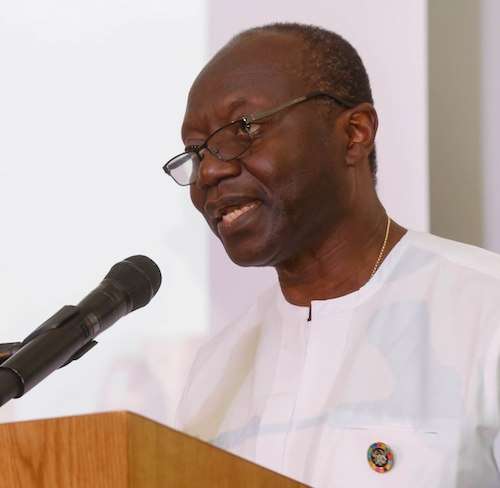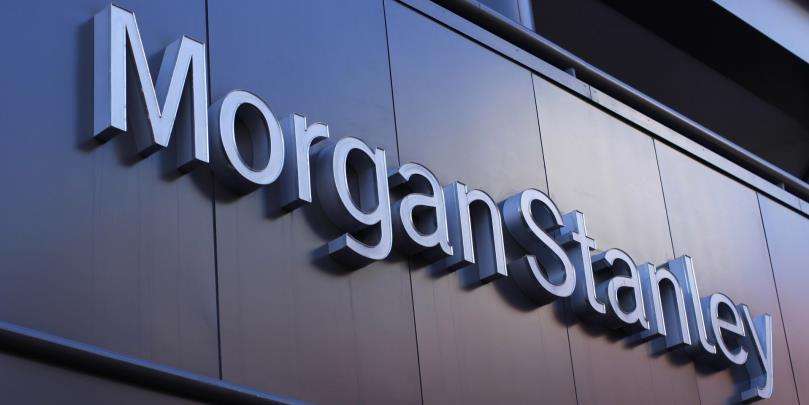Morgan Stanley, Investment Bank and Global Leader in Financial Services has lifted the average ‘recovery value’ for Ghana’s defaulted dollar-denominated government bonds from an earlier forecast of $41 to $46, following the country’s local currency debt restructuring deal.
The Investment Bank has lowered its estimate for Ghana’s foreign currency bonds’ “exit yield” to the range of 13-14%, down from the previous estimate of approximately 15%. Additionally, the investment bank now predicts that the government’s domestic debt exchange will result in savings of about $7.8 billion between 2023 and 2028, which is higher than its previous projection of $7 billion.
“We retain our like stance on hard currency bonds.”
Morgan Stanley
This, the bank stated in a research note published late on Thursday, February, 16th, 2023.
According to Morgan Stanley’s analysis, the loss in net present value (NPV) for domestic bonds in this particular case is expected to be 51%, which is significantly higher than the average of 21% observed in similar local debt restructurings in countries like Jamaica, Nicaragua, and Cyprus over the past 15 years.
Rescinding the Bank’s estimations late November, 2022, the bank anticipated the debt restructuring exercise of the government of Ghana to result in a ‘recovery price’ for Ghana’s bonds, thus, expected that the debt-hobbled country will restructure both its domestic and external debt.

Morgan Stanley noted that neither (both domestic and external) restructuring would include a principal haircut.
“The problem that Ghana has is largely due to its unsustainable debt but, more specifically, its interest costs relative to revenue. In aggregate, this metric is just shy of 50%, notably larger than its African and rating peers.”
Morgan Stanley
This, Morgan Stanley said in an analyst note, referring to how much the country (Ghana), spends on the interest on its debt.
The government, which is battling a once-in-a-generation economic crisis, said this week it had finished a domestic debt exchange with 85% participation of “eligible” bonds – or 64% of the 130 billion cedis ($10.8 billion) originally slated for restructuring, before pension funds were excluded when unions threatened to strike.
Government promises to hold substantive discussions with international bondholders
Ghana’s finance minister, Ken Ofori-Atta, told parliament on Thursday, February 16th, 2023, that substantive discussions were due to be held in the next few weeks with international bondholders.

Ofori-Atta assured the country of the stability the DDEP promises to bring individuals, households, businesses and nation as a whole.
“I am confident that the programme government has set out for this year, supported by parliament, will get us out of the economic crisis that has besieged our economy since COVID-19 reached our shores back in March 2020.
“I am confident that with conclusion of the Domestic Debt Exchange Programme, we will experience stability in exchange rates, inflation and interest rates – bringing businesses and families some respite.”
Ofori-Atta
Already, the inflation of the country has declined from its initial level of 54.1% to 53.6% – this being the first time since May, 2021, the country’s inflation dropped. This is an indication of the year-on-year decline in consumer prices spanning 2022 to 2023.
Despite the decline of the inflation rate, the Ghana Statistical Service (GSS) speculated that the lending rate will remain high at about an average of 35%.
Data from the GSS reveals that food-inflation rather than non-food inflation is the reason for the high inflation that Ghana suffers.
According to GSS’ data interpretation, food inflation from December 2022 to January 2023, had risen from 59.7% to 61.0% whereas non-food inflation has witnessed a decline from 49.9% to 47.9% within the same reference period.
This indicates that government needs to put in tactical measures to reduce the prices of food on the market to further level down inflation.
READ ALSO: Every Policy Intervention, Strategy Should Have Statistical Targets- Prof Annim




















